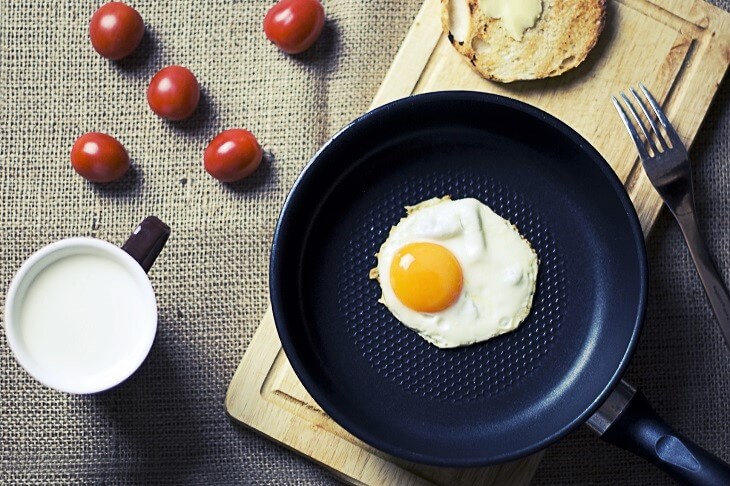
Author: Umi Fatimah
Non-stick frying pans are one of the most basic and frequently used kitchen cooking utensils. As the name suggests, this cooking tool is designed in such a way that the food being cooked does not stick to the surface of the pan.
With these advantages, non-stick pans can make it easier for beginners to cook. You can cook various types of dishes just by using a non-stick pan. For example, making pancakes, egg omelets, and various stir-fried vegetables.
Apart from that, non-stick pans are also suitable for grilling or frying foods that are usually difficult to separate from the surface of the pan, such as fish or meat. With this wok, you can create a variety of delicious dishes with perfect cooking results every time.
However, non-stick pans do require special care to make them last longer. How long the non-stick coating lasts actually depends on how you use, clean and store the non-stick pan. Here are some easy tips for caring for non-stick cookware so that it can be used longer.
1. Wash the Pan Manually
Even though some non-stick frying pan products are labeled as safe to be washed in a dishwasher, you should still wash them manually by hand to protect the surface of the non-stick frying pan.
This is because the hot temperatures and soap used in dishwashers can damage the non-stick surface. So, washing non-stick pans manually is the best option. Also make sure you dry the non-stick pan immediately after washing to avoid rust. of.
2. Wash with a Soft Sponge
So how do you wash a non-stick frying pan properly? After use, let the non-stick pan cool down to room temperature before you clean it, because sudden changes in temperature can cause the non-stick pan to warp permanently.
When cleaning non-stick pans, never use dishwashing wire, coir sponges, or other hard or abrasive dishwashing tools. These ingredients can scratch and damage the surface of the non-stick pan.
Use a soft sponge with warm soapy water to clean the non-stick pan. For stubborn food residue, soak the pan in warm soapy water or a mixture of water and baking soda before cleaning.
3. Grease the surface of the pan with oil
Before using it for the first time, you should grease a non-stick pan first. This process helps create a protective layer that increases the non-stick properties of the pan and prevents food from sticking to the surface of the pan.
You can apply a thin layer of cooking oil to the surface of the pan and heat it over low to medium heat for about 5-10 minutes. Once cool, wipe off any remaining oil on the surface of the pan with a tissue.
4. Avoid High Temperatures when Cooking
Non-stick frying pans are designed to cook food evenly over low to medium heat. Using high temperatures or too much fire can damage the non-stick coating and reduce its effectiveness.
So, always use a low to medium heat setting and never use a non-stick pan under the grill or on the stove over high heat.
5. Use the Right Equipment
When cooking with non-stick pans, use utensils made of silicone, wood, or plastic. Avoid using metal utensils as they can scratch the non-stick coating and reduce its lifespan. Be careful when stirring or turning food so that the non-stick surface of the pan is not damaged or scratched.
6. Store the Pan Properly
To protect the non-stick coating, avoid stacking the non-stick pan with other cookware or placing heavy objects on the non-stick pan during storage.
If you need to stack cooking utensils because of limited space, place a layer of tissue or paper on the surface of the pan. Store your non-stick pan in a cool, dry place to prevent damage.
Nah, Those are various tips for caring for non-stick frying pans so they last longer. Caring for non-stick cookware is not difficult and very easy, able to? With careful use and good care, you can extend the life of your non-stick frying pan even longer.

 Atsarina Luthfiyyah (Senior Editor)
Atsarina Luthfiyyah (Senior Editor)
Has educational experience in the fields of Culinary and Journalism. His hobbies are writing, traveling and cooking. Masters in Communication Sciences at Gadjah Mada University
Contact Us at [email protected]

